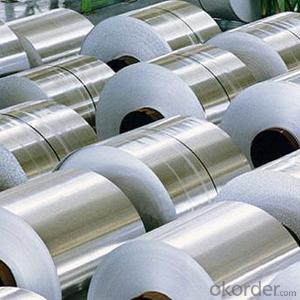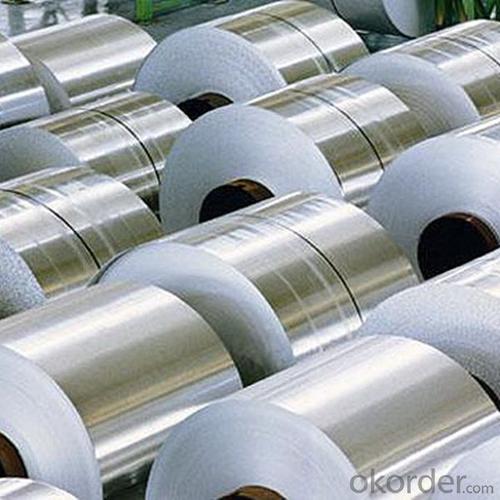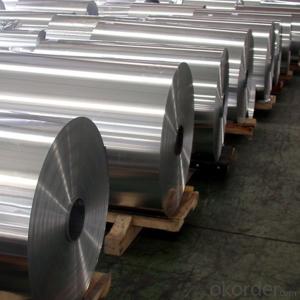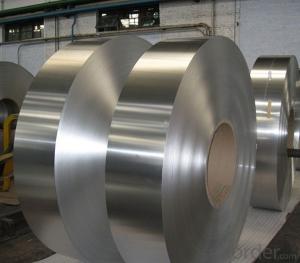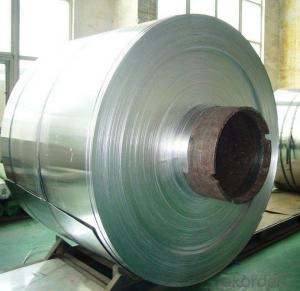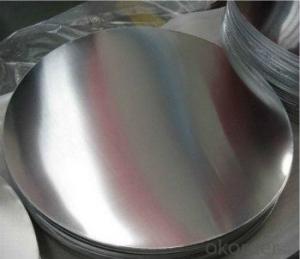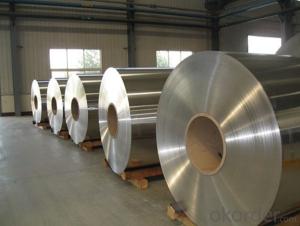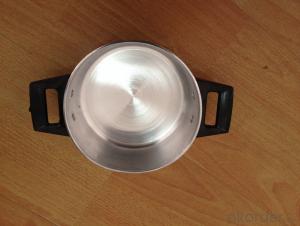2024 Hot Rolled Aluminum Coil AA3003 for Building
- Loading Port:
- Shanghai
- Payment Terms:
- TT OR LC
- Min Order Qty:
- 5 m.t.
- Supply Capability:
- 10000 m.t./month
OKorder Service Pledge
OKorder Financial Service
You Might Also Like
Specification
1. Specification of Hot Rolled Aluminium Coil AA3003 for Building
characteristics | Application |
1) Super peeling strength | 1) Building exterior curtain walls |
2) Excellent surface flatness and smoothness | 2) Decoration and renovation additions for old buildings |
3) Superior weather, corrosion, pollutant resistance | 3) Decoration of interior walls, ceilings, bathrooms, kitchens and balconies |
4) Even coating, various colors | 4) Shop door decorations |
5) Fireproof, excellent heat and sound insulation | 5) Advertisement board display platforms and signboards |
6) Superior impact resistance | 6) Wallboards and ceilings for tunnels |
7) Lightweight and easy to process | 7) Industrial materials, materials for vehicles and boats |
2. Application of Hot Rolled Aluminium Coil AA3003 for Building
(1).Interior: wall cladding, ceilings, bathrooms, kitchens and balconies, shutters, doors...
(2).Exterior: wall cladding, facades, roofing, canopies, tunnels, column covers , renovations...
(3).Advertisement: display platforms, signboards, fascia, shop fronts...
3. Feature of Hot Rolled Aluminium Coil AA3003 for Building
• Our goods quality is top, the surface is smooth, and every steel coil
• No Joint, No Bends, no spots, no roller marks.
• MTC will be provided with goods, third part inspection is acceptable, for example, SGS, BV. Etc
Be free from Oil Stain, Dent, Inclusion, Scratches, Stain, Oxide Dicoloration, Breaks, Corrosion, Roll Marks, Dirt Streaks and other defect which will interfere with use
4. Certificate:
SGS and ROHS(if client request, paid by client), MTC(plant provided), Certificate of Origin(FORM A, FORM E, CO), Bureau Veritas and SGS (if client request, paid by client), CIQS certificate
5. Image of Hot Rolled Aluminium Coil AA3003 for Building
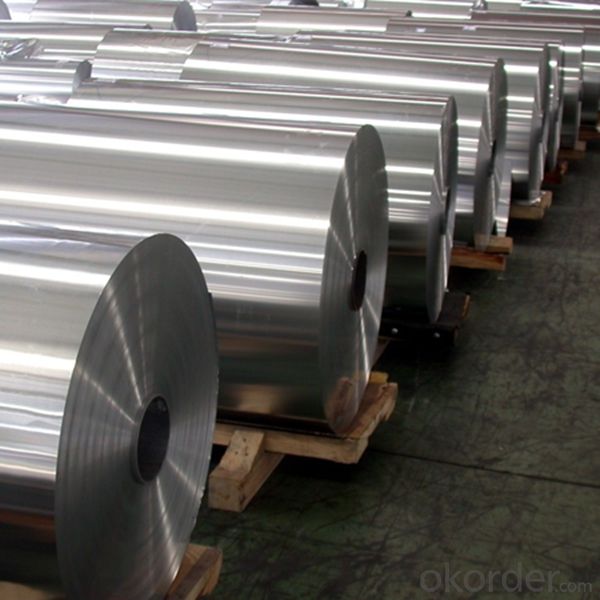
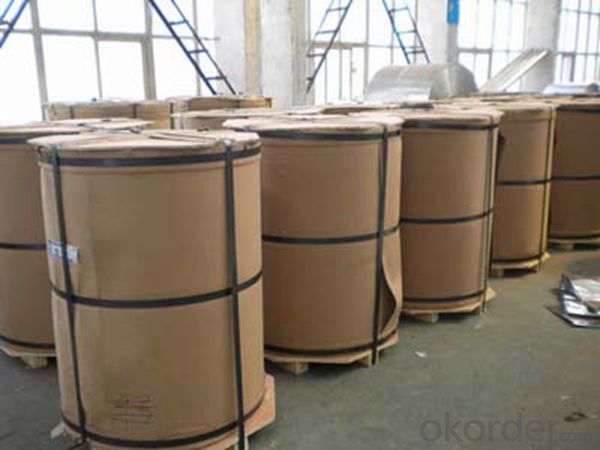
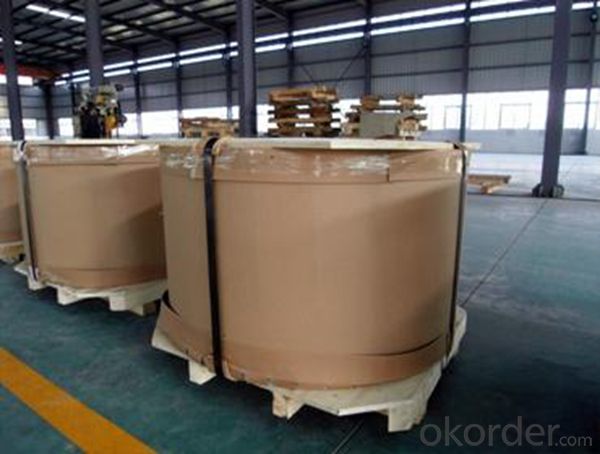
6. Package and shipping of Hot Rolled Aluminium Coil AA3003 for Building
eye to wall
eye to the wall
with wood pallet (wooded case also available)
7. FAQ
1) What is the delivery time?
Dpends on actual order, around 20 to 35 days
2)What is the QC system:
We have QC staff of 20 persons and advanced equipment, each production is with MTC traced from Aluminum ingot lot.
3) What market do you mainly sell to?
Australia, America, Asia, Middle East, Western Europe, Africa etc
- Q: How are aluminum coils processed to achieve desired mechanical properties?
- Aluminum coils are processed to achieve desired mechanical properties through a combination of cold rolling, annealing, and heat treatment. Cold rolling reduces the thickness of the aluminum coil, increasing its strength and hardness. Annealing, a heat treatment process, is then applied to soften the material and improve its formability. Additional heat treatments may be conducted to further enhance mechanical properties, such as tempering to increase toughness or solution heat treatment to improve strength and corrosion resistance. These processing techniques allow manufacturers to tailor the mechanical properties of aluminum coils to meet specific application requirements.
- Q: Can aluminum coils be used in chemical processing plants?
- Indeed, chemical processing plants can utilize aluminum coils. Aluminum, a versatile and extensively employed substance across multiple industries, including chemical processing, boasts exceptional resistance to corrosion. Consequently, it proves apt for the manipulation and conveyance of diverse chemicals. The application of aluminum coils extends to heat exchangers, condensers, evaporators, and other chemical processing equipment. Moreover, aluminum coils boast a lightweight nature and exhibit high thermal conductivity, promoting efficient heat transfer and energy conservation. Nevertheless, it remains crucial to carefully evaluate the specific demands and compatibility of the chemicals being processed to ascertain the suitability of aluminum coils for the intended use.
- Q: This question asks for a comparison of various types of equipment used for welding aluminum coils, highlighting their distinct features and applications.
- <p>Aluminum coil welding equipment varies based on technology, power source, and application. TIG (Tungsten Inert Gas) welders are known for high-quality welds and are ideal for thin aluminum coils. MIG (Metal Inert Gas) welders are versatile and suitable for thicker coils, offering faster welding speeds. Stick welders are more portable and cost-effective but produce lower quality welds. Laser welders provide precise, deep penetration welds suitable for high-precision applications. Friction stir welding is a solid-state process that offers excellent joint properties without melting the metal. Each type has its advantages and is chosen based on the specific requirements of the welding task, such as material thickness, weld quality, and production rate.</p>
- Q: Can aluminum coils be used in architectural mesh applications?
- Aluminum coils have the capability to be utilized in various architectural mesh applications. Widely used in construction and architectural projects, aluminum is a lightweight and adaptable material. It offers numerous advantages for architectural mesh applications, including a high strength-to-weight ratio, resistance to corrosion, and ease of installation. By manipulating aluminum coils, intricate architectural mesh designs can be formed in different shapes and sizes. These coils can be woven, welded, or expanded to produce diverse patterns and textures, granting flexibility in design and customization. Aluminum coil-based architectural mesh applications are present in a wide array of structures such as facades, partitions, ceilings, sunscreens, and safety barriers. The mesh provides benefits such as enhancing aesthetics, ensuring privacy, shading from the sun, enabling ventilation, and even offering security. Not only does aluminum possess aesthetic and functional qualities, but it is also a sustainable choice for architectural mesh applications. It is a highly recyclable material, and its lightweight nature reduces costs associated with transportation and installation, making it an environmentally friendly option. In summary, due to their durability, adaptability, and sustainability, aluminum coils are an exceptional option for architectural mesh applications. Whether it is for commercial, residential, or public spaces, incorporating aluminum mesh can enhance the visual appeal and functionality of architectural designs.
- Q: How are aluminum coils different from steel coils?
- There are several aspects in which aluminum coils and steel coils differ. To begin with, aluminum is a lighter metal than steel, resulting in significantly lighter aluminum coils compared to their steel counterparts. As a result, aluminum coils are easier to handle and transport, reducing the overall weight of the final product. Secondly, aluminum possesses higher corrosion resistance in comparison to steel. Steel coils tend to rust and corrode over time, especially when exposed to moisture or harsh weather conditions. Conversely, aluminum coils have a natural oxide layer that acts as a protective barrier against corrosion. This characteristic makes them more durable and long-lasting. Moreover, aluminum exhibits higher thermal conductivity than steel. Consequently, aluminum coils excel in efficiently transferring heat, rendering them ideal for applications that necessitate excellent heat dissipation. Steel, being a poor heat conductor, is less effective in dissipating heat and may retain heat for longer durations. Another notable distinction lies in the aesthetic appeal. Aluminum coils possess a natural silver-gray color, which imparts a sleek and modern appearance. On the other hand, steel coils typically undergo coating or painting to enhance their appearance and safeguard against corrosion. Lastly, the cost factor plays a role in distinguishing aluminum and steel coils. Generally, aluminum is more expensive than steel, primarily due to the higher production costs associated with aluminum extraction and processing. Nonetheless, the long-term advantages of utilizing aluminum coils, such as lower maintenance and replacement costs due to their corrosion resistance, can offset the initial higher investment. In summary, aluminum coils differ from steel coils in terms of weight, corrosion resistance, thermal conductivity, aesthetics, and cost. These divergences make aluminum coils a popular choice in various industries where factors like lightness, durability, heat dissipation, and corrosion resistance hold pivotal importance.
- Q: Are there any limitations to the maximum coil diameter of aluminum coils?
- Yes, there are limitations to the maximum coil diameter of aluminum coils. The maximum coil diameter is determined by several factors including the type and thickness of the aluminum, the equipment used for coiling, and the intended application of the coil. Generally, larger coil diameters can be achieved with thinner and more ductile aluminum alloys. However, as the coil diameter increases, it becomes more challenging to maintain the structural integrity of the coil and prevent deformation, wrinkling, or damage during handling and transportation. Additionally, the equipment used for coiling may have limitations in terms of the maximum diameter it can handle. Therefore, it is important to consider these factors when determining the maximum coil diameter for aluminum coils.
- Q: What are the various dimensions and specifications of aluminum coils available in the market?
- <p>Aluminum coils come in various sizes and specifications to cater to different industrial needs. Common sizes include thicknesses ranging from 0.005 to 0.5 inches (0.13 to 12.7 mm), widths from 1 to 72 inches (25 to 1829 mm), and lengths from 10 to 6000 feet (3 to 1829 meters). The specific dimensions can vary based on the manufacturer and the application, such as construction, automotive, or packaging. It's important to consult with suppliers for the exact sizes available for a particular project or application.</p>
- Q: Can aluminum coils be used in signage applications?
- Indeed, signage applications can make use of aluminum coils. The durability, corrosion resistance, and lightweight characteristics of aluminum render it a favored material for signage purposes. Aluminum can effortlessly take on different shapes and sizes, making it suitable for a wide range of signage types, including outdoor signs, billboards, trade show displays, and more. Furthermore, aluminum coils boast exceptional weather resistance, guaranteeing the preservation of the signage's integrity and vibrancy even in harsh environmental circumstances. The versatility and longevity of aluminum establish it as the preferred option for signage applications across diverse industries.
- Q: What benefits can utilizing aluminum coil bring to the construction industry?
- <p>Aluminum coil offers several advantages in construction, including its lightweight nature which reduces structural load and facilitates easier handling and installation. It is highly resistant to corrosion, ensuring longevity and low maintenance costs. The material is also known for its excellent thermal conductivity, making it suitable for energy-efficient applications. Additionally, aluminum coil is recyclable, contributing to sustainability and reducing environmental impact. Its versatility allows for various applications, from roofing and siding to structural components, enhancing aesthetic appeal and functionality.</p>
- Q: Is it safe to use aluminum coil for storing food?
- <p>Aluminum coil can be used for food storage, but with certain considerations. Aluminum is a good conductor of heat and is often used in cookware, but for long-term food storage, it's not ideal. It's important to ensure that the aluminum is coated or lined with a non-reactive material to prevent direct contact with food, as aluminum can leach into food and may have health implications. Additionally, aluminum is not recommended for acidic foods as it can react with them. For best food storage practices, consider using materials specifically designed for food contact, such as glass or food-grade plastic containers.</p>
Send your message to us
2024 Hot Rolled Aluminum Coil AA3003 for Building
- Loading Port:
- Shanghai
- Payment Terms:
- TT OR LC
- Min Order Qty:
- 5 m.t.
- Supply Capability:
- 10000 m.t./month
OKorder Service Pledge
OKorder Financial Service
Similar products
Hot products
Hot Searches
Related keywords
